You will learn what social entrepreneurship is, its characteristics and how it differs from other forms of entrepreneurship.

You will learn what social entrepreneurship is, its characteristics and how it differs from other forms of entrepreneurship.
You will understand the situation of social entrepreneurship in Estonia: how many people are employed in the sector, when the most social enterprises were founded, etc.
Social enterprises are businesses whose main purpose is to create a positive impact on society. In simple terms – social enterprises sell their products or services with the aim of making the world a better place.
The social purpose of social enterprises means their direct contribution to people’s livelihoods and well-being and to the maintenance of a desirable state of the natural and living environment.
Entrepreneurship means acting as an economic entity, i.e. providing goods or services for remuneration on a permanent basis.


All social enterprises are tackling some kind of SDG (sustainable development goals) set by the United Nations to ensure that the world remains the same or better than it is for future generations. Social enterprises are the backbone of all this, helping life to go on sustainably.

Generation Z are said to be the ones who are most searching for meaning, for deeper meaning. Helping the world to function, i.e. to improve the environment or human well-being by solving the most complex problems such as an ageing society, environmental pollution, over-consumption of things, is what gives enormous satisfaction.

The business models of social enterprises are very diverse. It is possible to obtain and finance oneself partly from project grants, but also from purely commercial revenues. It is therefore an easy way to plug your existing skills and knowledge into the world-changing trolley.

The more successful you are as a social entrepreneur, the better off you will be both financially and in terms of helping people/environment. This is the sector and the form where both financial and philanthropic interests are automatically linked. So you never have to worry about becoming too materialistic or whether you will make a living from what you do. The more successful you are, the more you help and the more you earn.

The green revolution, sustainable consumption, the circular economy and all the other issues related to social entrepreneurship are mega-trends that banks, government agencies, listed companies and the people around us need to take into account. Considering the increasing attention that is being paid to this topic, now is the best time to start social entrepreneurship.

While it’s often hard to get started because you don’t know what to do or how to do it, when it comes to social entrepreneurship, we’ve created both a Slack community, with lots of materials available here on the same pages, and the biggest impact festival in the Baltics, Impact Day, where you can be with people just like you.






There is no specific legal form in Estonian legislation defining social enterprises: they can operate as an LLC, NGO, foundation, profit-making cooperative, sole proprietorship, partnership or limited partnership.
A number of organizations are working in Estonia to help social entrepreneurship grow.
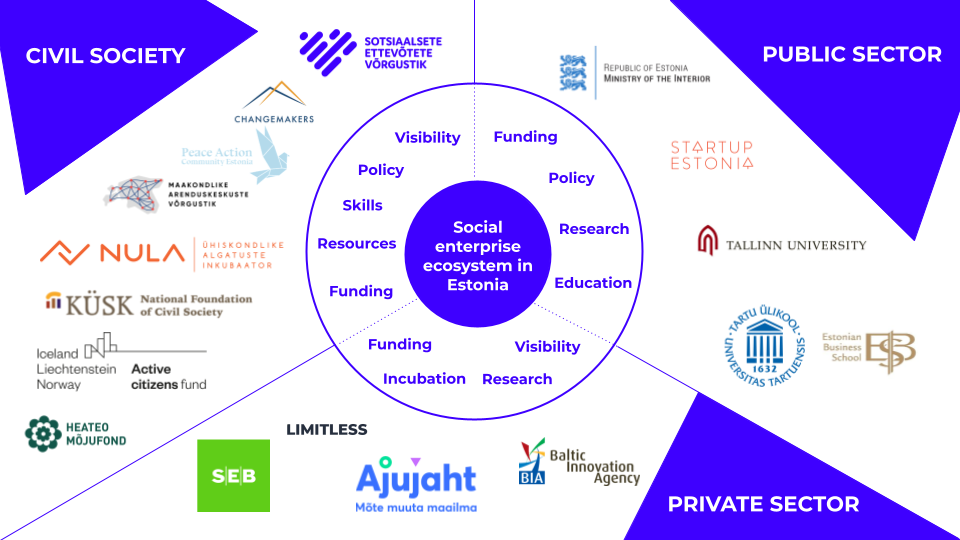
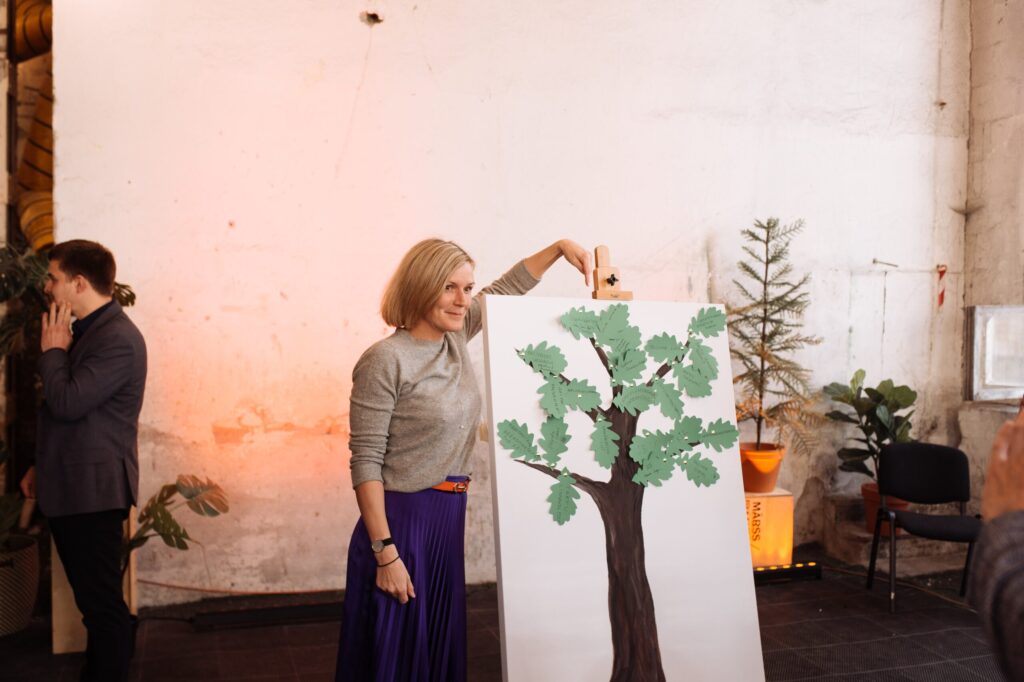
The agreement of cooperation in social entrepreneurship and innovation is a broader statement of intent for cross-sectoral cooperation and demonstrates the openness and willingness of the parties to work together to develop the sector.
The memorandum has been signed by 23 different organisations working in the field of social entrepreneurship and innovation, including ministries, universities, private sector partners and support organisations.
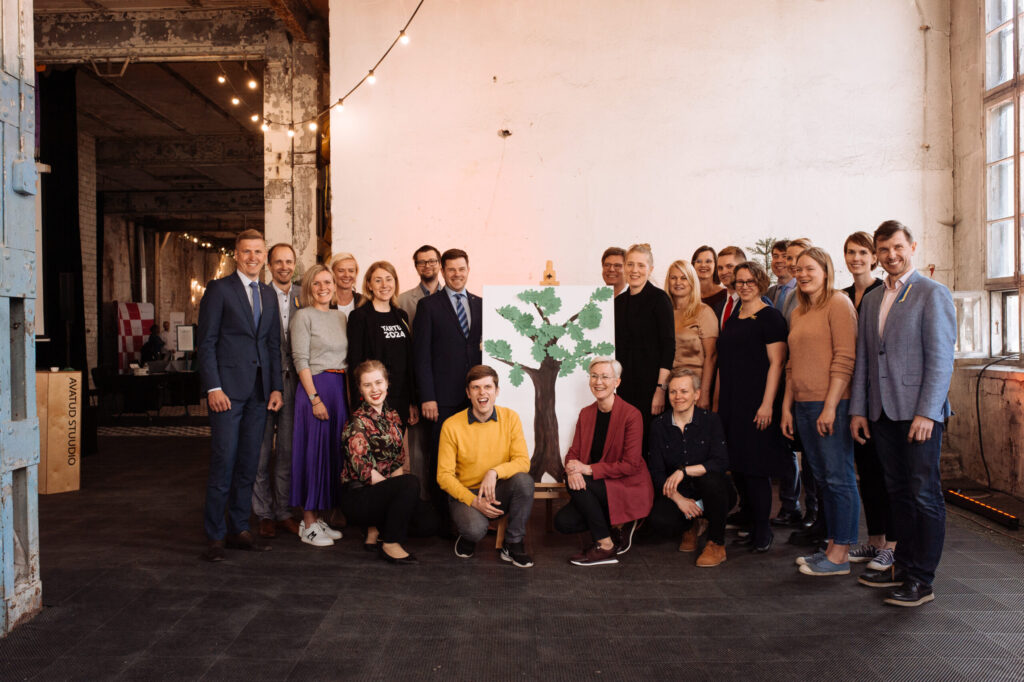
The parties agreed to cooperate in four areas:
In Estonia, the activities related to the Agreement are coordinated by the Social Enterprise Estonia. The Cooperation Agreement will remain open to all interested parties.
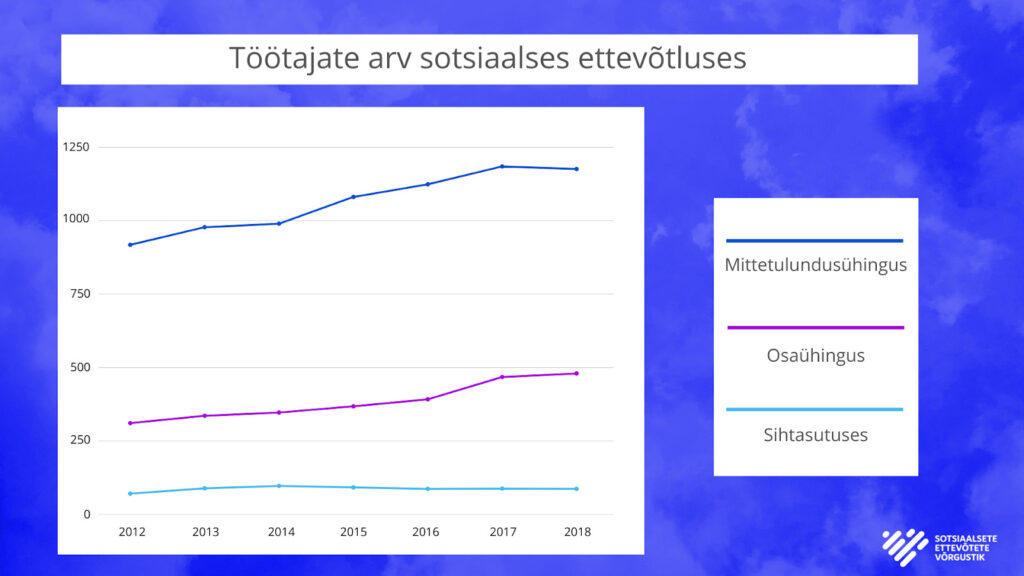
Looking at the number of employees in social enterprises, the growth is steady. Although the number of employees increased by just two in 2018, a record 138 new jobs were created in the year before. Furthermore, the statistics show that social entrepreneurship is not the exclusive domain of NGOs – 5% of social enterprise jobs are in foundations and 27.5% in limited partnerships.

In 2018, there were a total of 126 social enterprises registered in Estonia, of which, interestingly, 40% were created during the recession years 2006-2011. In recent years, the number of new enterprises has been quite low and we are currently at the same level as we were at the beginning of the 1990s in Estonia – up to 5 new social enterprises every two years.
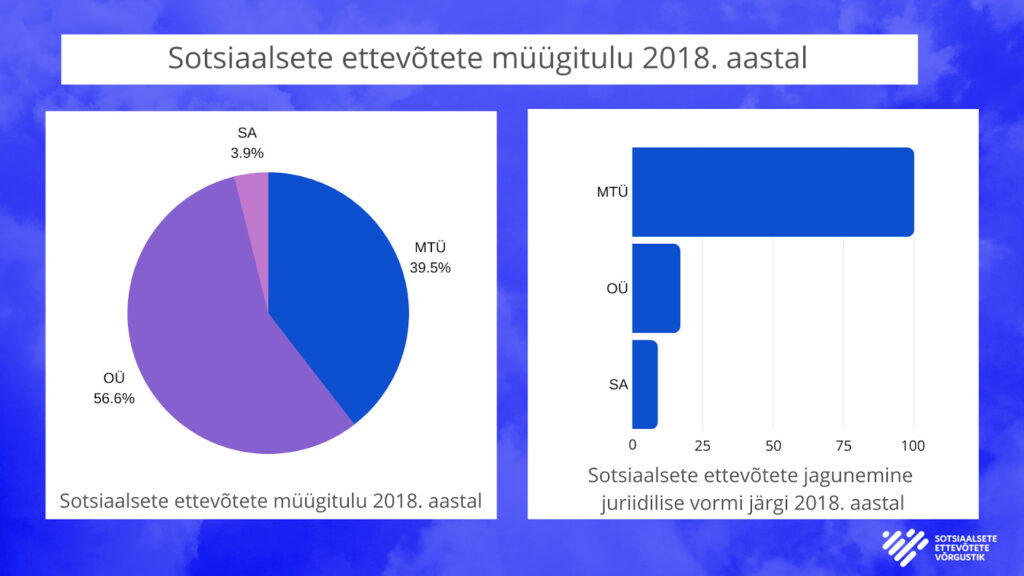
In 2018, more than half of all social enterprise sales revenue was generated by private limited companies. Non-profit organisations accounted for almost 40% of sales revenue and foundations for almost 4%. It is also interesting to note that a total of 17 private limited companies generated 56.6% of the sales revenue of social enterprises in 2018, while 100 non-profit companies contributed to almost 40% of the sales revenue. The total number of active foundations this year was 9. This means that one social enterprise sub-entity generates the same amount of sales revenue per year as the rounded figure of 8 non-profit organisations or foundations.
In the database, you can find social enterprises operating in Estonia, the sustainable development goals they address and their sizes.